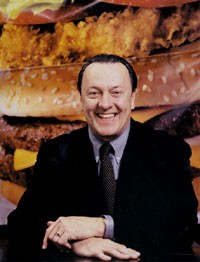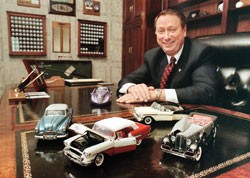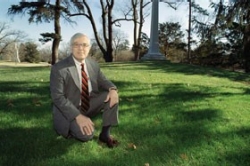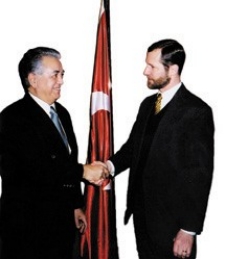How to recover from a PR nightmare
by Robert Nugent, BusAd '64, resilient restauranteur
Editor's note: When hundreds of people became ill and four children died from a major foodborne-illness outbreak linked to Jack in the Box restaurants in 1993, sales immediately dropped 40 percent and the stock price plummeted. Since then, the company has rebounded as an emerging national chain with nearly 1,800 restaurants, about 600 more than before the crisis. Here is the two-step formula Jack in the Box adopted to recover:
Step 1: Commit all resources to regaining the public's trust. We committed to doing everything possible to ensure the safety of our food, from farm to fork. We developed the industry's premier food safety system, strengthened requirements for meat suppliers, carried out microbiological testing on meat, worked with legislators to develop stronger food safety laws and created a customer-relations department.
Step 2: Spread the word. We launched a national public relations campaign that told our story through the news media. At the same time, we informed investors, financial analysts and bankers about our strategy to regain our footing.
Quoted in major newspapers after the 1993 E. coli outbreaks, UC alum Robert Nugent, CEO of Jack in the Box, said his company would help its customers with medical bills "immediately, with no strings attached." Today, the hamburger giant's annual sales are about $2 billion.
Link:
Jack in the Box Web site
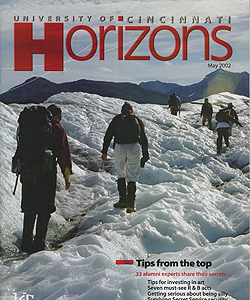
 Past Issues
Past Issues